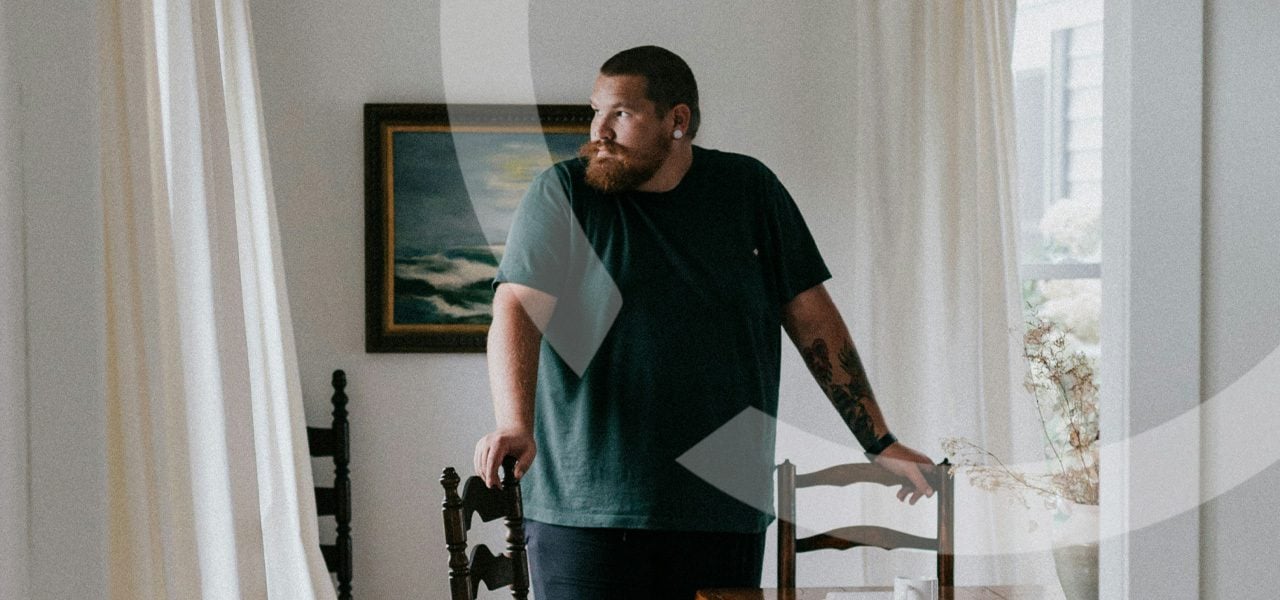Technology has enhanced how individuals can get mental health support, especially throughout the COVID-19 pandemic. Yet with so many options for recovery, it can be overwhelming finding a solution that’s best for you. Identifying your symptoms and how severe they are will help narrow your search and find a virtual therapy solution to help you thrive!
What is online therapy?
Online therapy, also known as virtual therapy, teletherapy or e-therapy provides internet-based mental health support via secure web platforms. Users can communicate with mental health professionals in real time via messaging, video, or phone. For those who live in remote areas, have busy schedules, childcare responsibilities, or limited access to quality in-person support, online therapy is an accessible solution for mental health needs.
Which type of therapy is best for me?
It is important to understand the severity of your symptoms in order to find the best mental health support for you. Think back to the last seven days and answer the questions below. How frequently did the listed symptoms occur?
For each question, give yourself a score of 0-4, with 0 being “I have not experienced this symptom at all” and 4 being “I experienced this symptom non-stop.”
Questionnaire #1: Depression
Reminder: answer each question on a scale of 0-4 (0 means you did not experience this, and 4 means you experience it constantly).
In the past seven days, I…
- Found little interest or pleasure in doing things
- Felt down, depressed, or hopeless
- Had trouble falling or staying asleep, or sleeping too much
- Felt tired or had little energy
- Had a poor appetite or over-ate
- Felt bad about myself – that I am a failure or have let myself or my family down
- Had trouble concentrating on things, such as reading, working or watching television
- Moved or spoke so slowly that other people could have noticed? Or the opposite—was noticeably fidgety or restless
- Thought that I would be better off dead, or of hurting myself in some way
Add up your score and divide it by nine to find your average. View the severity chart below to identify where your symptoms land.
Questionnaire #2: Anxiety
Reminder: answer each question on a scale of 0-4 (0 means you did not experience this, and 4 means you experience it constantly).
In the past seven days, I…
- Felt moments of sudden terror, fear, or fright
- Felt anxious, worried, or nervous
- Had thoughts of bad things happening, such as family tragedy, ill health, job loss, or accidents
- Felt a racing heart, sweaty, trouble breathing, faint, or shaky
- Felt tense muscles, was on edge or restless, or had trouble relaxing or sleeping
- Avoided situations about which I worry
- Left situations early or participated only minimally due to worries
- Spent lots of time making decisions, putting off making decisions, or preparing for situations, due to worries
- Sought reassurance from others due to worries
- Needed help to cope with anxiety (e.g. alcohol or medication, superstitious objects, or other people)
Add up your score and divide it by ten to find your average. View the severity chart below to identify where your symptoms land.
Severity Chart
Once you have added your scores together and divided them by the number of questions you answered, you should have a number between 0 and 4. Find your place on the chart for a general estimation of your symptom severity.
| Average Score | 0 | 1 | 2 | 3 | 4 |
| Symptom Severity | None | Mild | Moderate | Severe | Extreme |
Keep in mind that the results of this exercise are not conclusive, but are a great starting place for understanding your mental health. Speaking to a doctor or counsellor for a professional opinion will offer more concrete answers.
Types of online therapy
Online therapy exists in many forms. This method can be beneficial to those struggling with mild to moderate mental health symptoms. In order to participate in online therapy, patients will require access to technology such as webcams, laptops and a reliable WiFi connection. Online therapy, especially groups, are most effective when using a tablet or laptop, not a smart phone.
Most effective for mild symptoms or immediate relief
- Individual counselling – One on one counselling with a therapist via secure video platform.
- Individual text or telephone counselling – One on one counselling with a therapist via your phone, with more opportunity for immediate support.
- Self-help groups – Meet virtually with peers who have had similar experiences and offer each other support.
- Mental health and wellness apps – Access mental health and wellness resources to improve your mind and mood.
Most effective for moderate symptoms
- Group counselling – Therapeutic support with peers led by a licensed therapist via secure video platform.
- Virtual Intensive Treatment Programs (VITPs) – Intensive online treatment on a secure platform with a combination of individual and group therapy. EHN Online’s VITP also includes access to our Wagon app.
Most effective for severe and extreme symptoms
- If you’re experiencing severe mental health symptoms, you may benefit from an intensive outpatient program or a residential treatment stay. Following inpatient treatment, many patients benefit from maintaining their recovery with solutions appropriate for moderate symptoms, such as group counselling or intensive outpatient programs.
How to know if an intensive outpatient program is right for you
EHN Online offers a virtual VITP for those who are experiencing moderate mental health symptoms. A flexible and affordable solution, VITPs allow patients to work around their personal and work schedules, but still maintain a level of intensity that supports accountability in your recovery. Visit our mood and anxiety page to learn more about intensive outpatient therapy, or book an assessment with one of our counsellors.
Some of the most notable benefits for mood and anxiety VITPs are:
- Skills-based sessions for immediate results
- Minimal disruption to work and family
- Affordable option as compared to individual counselling alone
- Convenient
- Evidence-based therapy with proven results
- Compatible with an easy-to-use online platform and app
The VITP at EHN Online is eight weeks of intensive treatment, four times a week, featuring both individual and group therapy. Studies show that group therapy plays an important role in recovery by creating an intimate support network for sharing information and support with peers who have similar experiences.[1] [2]
Following the intensive treatment, patients participate in ten months of aftercare for two hours/week. These groups are offered online and include use of the Wagon app, which allows you to track daily progress, achieve your goals, and better communicate with your designated counsellor.
Just as mental health isn’t uniformly experienced by everybody, no method of recovery is equally beneficial to all. Reflect upon your symptoms and try to determine which solutions will provide the most value to you. Understanding your severity is a great place to start, so you are already on the right track!
All of the information on this page has been reviewed and verified by a certified mental health professional.
[1] Fogger, S. A., & Lehmann, K. (2017). Recovery Beyond Buprenorphine: Nurse-Led Group Therapy. Journal of addictions nursing, 28(3), 152–156. https://doi.org/10.1097/JAN.0000000000000180
[2] Epstein, E. E., McCrady, B. S., Hallgren, K. A., Gaba, A., Cook, S., Jensen, N., Hildebrandt, T., Holzhauer, C. G., & Litt, M. D. (2018). Individual versus group female-specific cognitive behavior therapy for alcohol use disorder. Journal of substance abuse treatment, 88, 27–43. https://doi.org/10.1016/j.jsat.2018.02.003
A Team That Supports Your Recovery Goals
EHN Canada and EHN Online make the process of getting the qualified help you need easy. Give us a call to learn more about our services and how we can support you on your journey to recovery. With facilities online and across Canada, we can find a program that’s right for you.
Bellwood (Toronto, ON): 1-800-387-6198
Edgewood (Vancouver Island, BC): 1‑800‑683‑0111
Ledgehill (Lawrencetown, NS): 1-800-676-3393
Sandstone (Calgary, AB): 1-587-350-6818
Gateway (Peterborough, Ontario): 1-705-535-0636
Nouveau Depart (Montreal, Quebec): 1-888-488-2611
EHN Online: 1-888-767-3711
Or contact us by email.
After finding the right program, you can get started on your recovery, supported by EHN Canada, a recognized leader in addiction and mental health services. Wherever your symptoms fall, we can help you find a new and better place to thrive.




